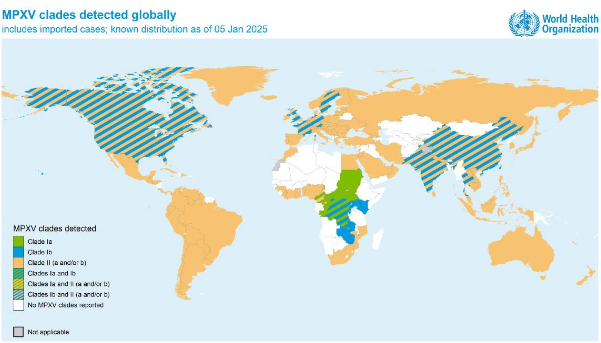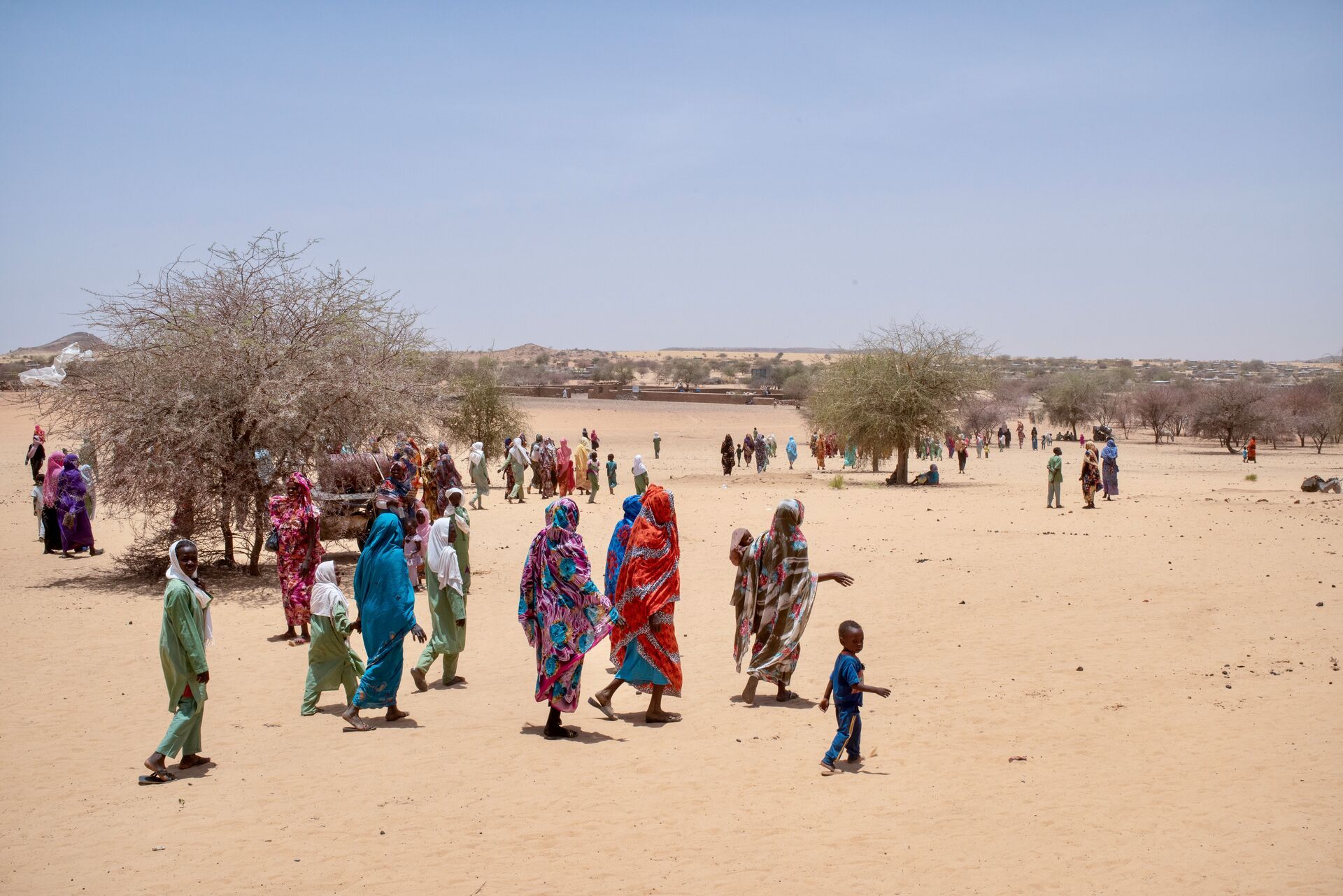
Geneva: While the outbreak of clade Ib mpox virus (MPXV) continues predominantly in the Democratic Republic of the Congo, Burundi and Uganda, new travel-related cases have been identified in previously unaffected countries.
Between November 25, 2024, and January 5, 2025, Clade Ib MPXV was detected in three previously unaffected countries, Belgium, China and France, directly or indirectly linked to travel to affected countries in Central Africa. China has detected five cases: one with travel history to the Democratic Republic of the Congo and four close contacts of this traveller. Belgium has detected two cases: one case among a traveller from an affected country in Central Africa and one family contact of this traveller. France has detected one case without travel history, who reported contact with two individuals with recent travel history to an affected country in Central Africa.
Besides, a travel-related case of mpox due to clade Ib MPXV in Germany (the second importation) led to secondary household transmission. Morevoer, Kosovo, too, reported its first case of mpox but information on the MPXV clade was not yet available.
“Recent travel-associated mpox cases highlight the risk of undetected transmission in countries, emphasizing the need for strengthened surveillance and timely reporting to improve global monitoring and prevent international spread,” the World Health Organization (WHO) stated here today in its 45th situation report for the multi-country outbreak of mpox, which provides details on the latest epidemiological trends.
Since the last WHO update report of December 23, 2024, Uganda has reported six deaths, bringing the total to 12 deaths among confirmed mpox cases in the country.
Mpox: Multi-country External Situation
The Democratic Republic of the Congo remains the most affected country, experiencing circulation of both clade I MPXV subclades. Despite many of the provinces reporting stable trends in cases, the situation in the country remains concerning with the continued high circulation of the virus.
Burundi and Uganda continue reporting between 100-200 new mpox cases per week, with a plateauing trend, possibly impacted by a decline in surveillance and reporting during the December festive season.
Since its first detection in September 2023, clade Ib MPXV has been detected in eight provinces of the Democratic Republic of the Congo (in South Kivu, North Kivu, Kinshasa, Kasai, Tshopo, Tanganyika, Haut-Katanga, and Mai-Ndonbe provinces).
Within Africa, community transmission has been reported in Burundi, Kenya, Rwanda and Uganda; travel-related cases have been reported from Zambia and Zimbabwe. In addition, while no cases have so far been confirmed in Tanzania, the identification of mpox cases with a travel link to Tanzania suggests undetected transmission in the country.
Outside of Africa, eleven countries have detected clade Ib MPXV. Sweden, Thailand, the United States of America and Canada have detected one case each among travellers from affected countries in East and Central Africa. Germany has confirmed six cases: three cases among travellers from affected countries in East Africa and three household contacts of one of these travellers. The United Kingdom of Great Britain and Northern Ireland has detected five cases: two cases among travellers from affected countries in East Africa and three household contacts of one of these travellers.
India and Pakistan have each detected a single case among travellers from the United Arab Emirates. No case of mpox due to clade Ib MPXV has been reported by the United Arab Emirates so far, suggesting undetected transmission in the country.
– global bihari bureau






